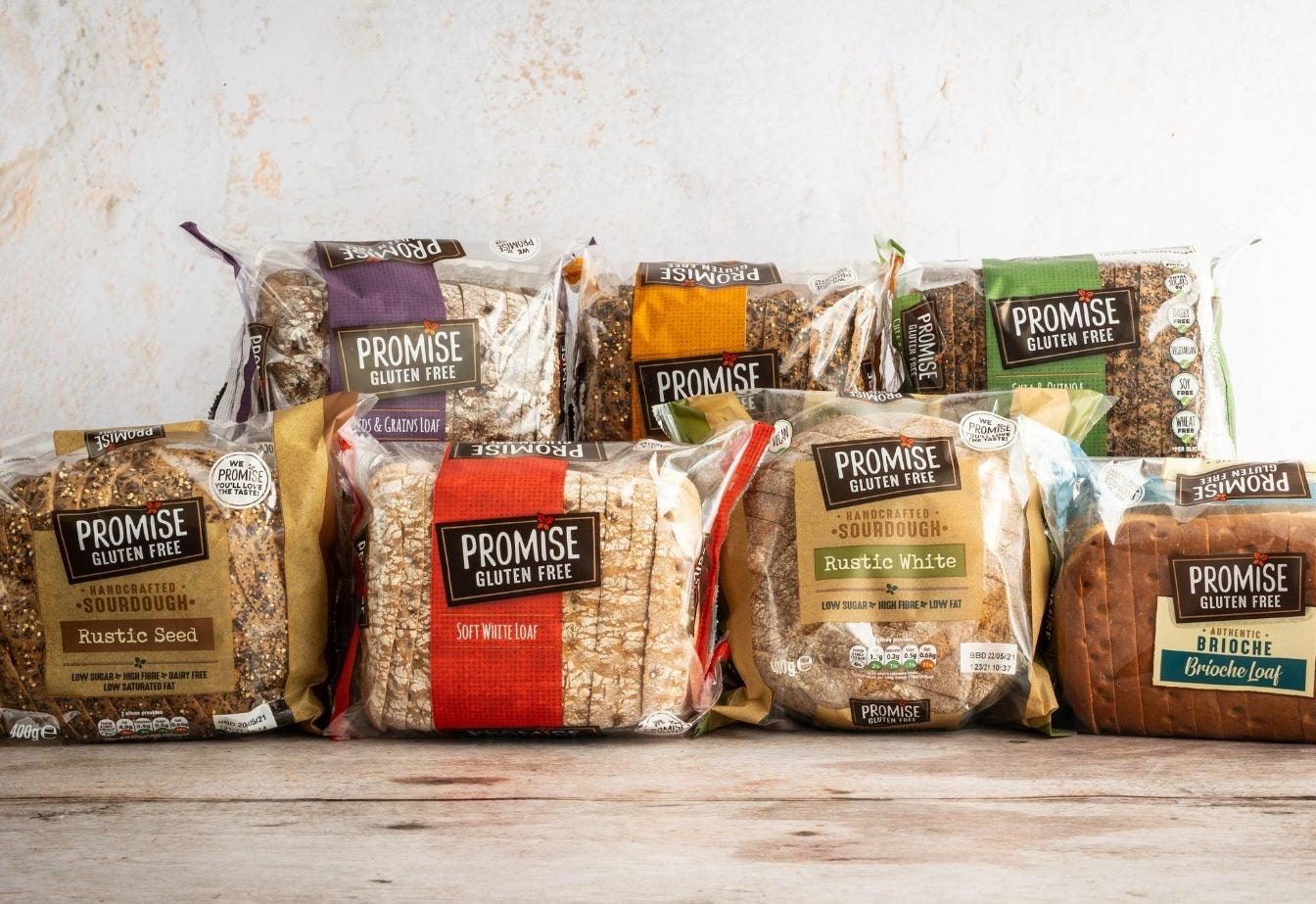
Promise Gluten Free plans to drum down on the US this year as the Ireland-based bakery business seeks to surpass €60m ($65.1m) in sales.
Fully owned by Mayfair Equity Partners since 2017, Promise Gluten Free also has eyes on Sweden and other Nordic countries, along with Spain, but expansion in the US is a priority for this year and next.
Patrick O’Sullivan, who joined Co. Donegal-headquartered Promise as CEO in 2018, explained that Ireland, the UK and Canada are its core markets, generating a 42% CAGR since he re-energised the business five years ago.
His strategy was to exit private label and foodservice to focus on a branded business model around the Promise Gluten Free bakery brand and the Gallaghers Bakehouse conventional sourdough line. Listings have been secured in Sainsbury’s and Tesco, and Morrisons was added to the roster late last year.
While Promise also still serves the discounters in the UK, O’Sullivan is looking to the US to add further impetus to branded growth. The company’s second manufacturing facility in Scranton, Pennsylvania, which had been making what he called confectionery products, will start producing the “core” bakery lines in the second half of this year as the manufacturing “hub” for North America.
“The most exciting future move for us is the US. We’re in year five of Promise and our growth is going to continue strongly,” O’Sullivan told Just Food, adding both core brands are each expected to grow sales more than 30% in 2024.
Access the most comprehensive Company Profiles
on the market, powered by GlobalData. Save hours of research. Gain competitive edge.

Company Profile – free
sample
Your download email will arrive shortly
We are confident about the
unique
quality of our Company Profiles. However, we want you to make the most
beneficial
decision for your business, so we offer a free sample that you can download by
submitting the below form
By GlobalData
“We have tested our fresh, gluten-free bakery model in Canada. The US market is a frozen gluten-free market and the velocities are a fraction of what we sell in Canada. If we could replicate 50% in the US, we would have huge success.”
In terms of the potential, O’Sullivan suggested Promise Gluten Free has been responsible for 73% of the gluten-free category growth in Ireland since the brand was launched there four years ago. In Canada, it has been 100%.
“We are competing already against many of the US players that are in Canada, and we know we can out-punch them. But, even more importantly, we’ve got huge pent-up demand for Promise from US consumers,” he explained.
“Ninety per cent of our focus is the US opportunity. It’s the biggest gluten-free category in the world by a long shot and should be substantially bigger than it is. And we believe a brand like Promise can really be a game changer versus the very best that’s there.
“Entering a market like the US and other markets is going to really scale up the business substantially.”
For other horizon countries like Sweden, the Nordics and Spain, Promise is “seeding” those this year, O’Sullivan said. “We will get on the ground, get the customer listings in place, get the infrastructure in place and the real sales will kick-in the year after.”
Meanwhile, he plans to target other UK retailers, with the objective that you “have Promise as a brand that’s present wherever you shop in the UK”.
O’Sullivan added that Aldi and Lidl also have “strategic value”, even though he quit private label more generally early on, retaining the discounters because “that channel of trade is growing strongly”.
Promise was in the “early iteration” stage when the business was founded in 2011 until O’Sullivan took the helm in 2018. He said it is not only coeliacs or people with intolerances who are seeking out gluten-free options but also those after a healthier alternative.
When the later is considered, the proportion of consumers interested in gluten-free bakery rises to about 40% of the population, from 12%, he suggested.
“We’re in less markets now than we were in 2018. When I joined, we were selling some earlier versions of gluten-free with Woolworths in Australia and on the west coast of the States.
“I stopped all of that because we were starting something new, we were building brands, and we were going to build a sustainable business model. We were not going to be just an export business,” O’Sullivan explained, adding that Promise exited about €25-30m of business under his new strategy.
“My philosophy has always been better before bigger. Build a better, robust business, and then ensure it can travel because taking it and deploying it in more markets becomes easier if you know it’s well tested.”

